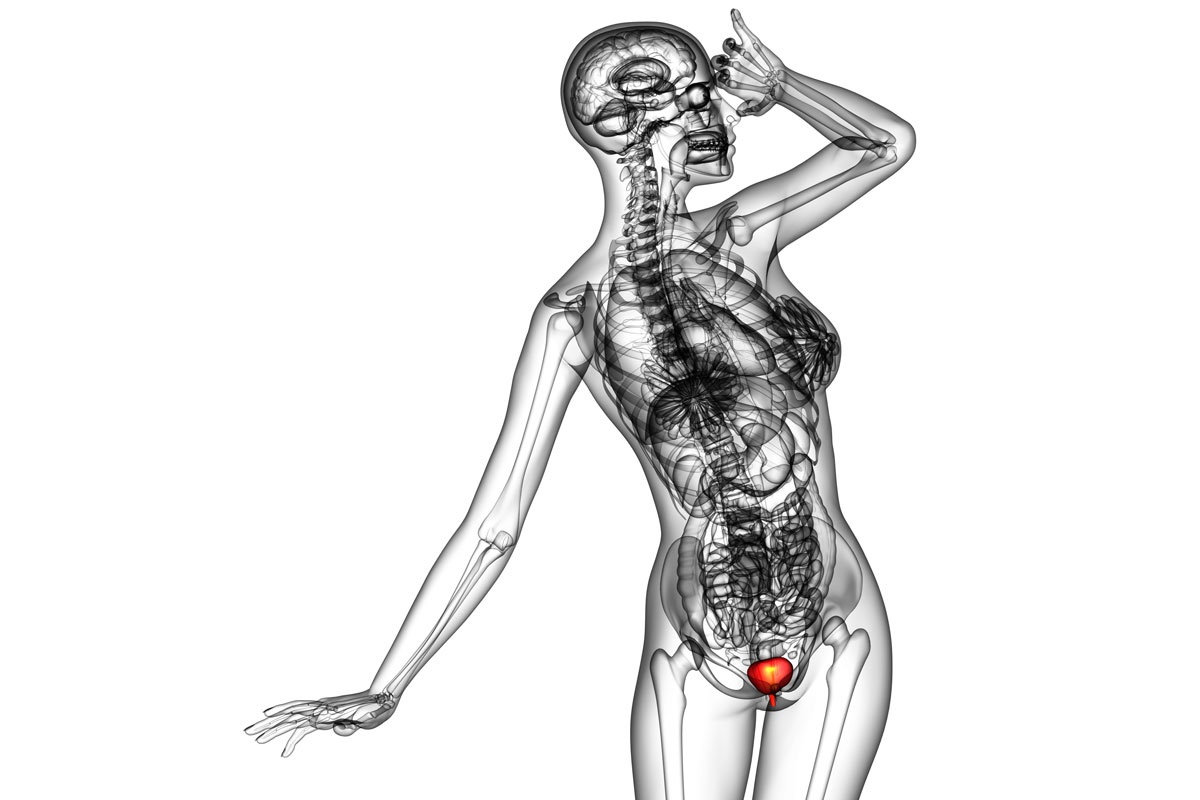
Determining how people maintain bladder control may come down to learning how the brain communicates with that organ.
That’s the goal of a research project led by UConn Health’s Dr. Phillip P. Smith, and funded by a $600,000 grant from the NIH’s National Institute on Aging.
According to Smith, just like in the heart and other systems, a critical “pacemaker” controlled by the brain might help establish how sensitive the bladder is to what it is holding, and allow a person to make the ongoing adjustments needed to integrate urinary needs with all the other challenges to the body’s systems.
With aging, this pacemaker system might not work as well, says Smith, associate professor of surgery, clinician in UConn Health’s Center for Continence and Voiding Disorders, and researcher at the UConn Center on Aging.
“Just how does the brain talk to the bladder, and how can we adjust this communication should it start to fail, in order to help our patients?” he asks. “Current available treatments are not fully addressing our patient’s overarching urinary problems, because it’s not just about the bladder.”
An important part of improving care for older adults is developing the idea that ‘disease’ is not just a failure of one organ; the whole system has to be considered — Dr. Phillip P. Smith
The bladder, located in the front of the pelvis, is an important muscular organ with a sensitive system of nerves that acts as a holding chamber and protects the kidneys from infection.
Under the brain’s control, urination happens when the bladder muscle contracts. Most of the time though, the brain is telling the bladder to relax so that we can hold urine. As the bladder fills, it sends signals about its fullness to the brain. But in later life, this system is often not as accurate, leading to urinary issues from incontinence and overactive bladder to urinary infections.
For many people this may not show up as a problem, just as many older adults have no urinary trouble. But it could increase the chance that the system gets out of adjustment, resulting in symptoms, explaining why older people are more likely to have urinary problems.
While regulated by the brain, Smith notes that the bladder is still a muscle and can only take so much added stress. Not paying attention to symptoms, smoking, and poorly controlled diabetes all can contribute to damaging sensitive bladder control systems.
He recommends, whether you are a young adult or an elderly person, if you start to experience a bothersome urinary problem or symptoms such as leaking; frequent, incomplete, or painful urination; or, especially, blood in your urine – don’t hesitate to talk to your doctor.
“If you are having a urinary issue – know that you are not alone,” says Smith. “We all need our bladder to work right to live high quality lives, so make sure to find out what is happening by talking to your primary care doctor.”
Smith hopes through his research to better understand what’s normal when it comes to human urinary health and how widespread urinary issues truly are.
He says the grant, a Paul B. Beeson Emerging Leaders Career Development Award in Aging, will not only propel the research project but also provide him opportunities to engage, interact with, and learn from scientists and clinicians involved in aging research throughout the world.
“An important part of improving care for older adults is developing the idea that ‘disease’ is not just a failure of one organ; the whole system has to be considered,” he says.
In addition to keeping an active brain as you age to help promote its optimal communication with your bladder, Smith advises these tips to maintain your bladder health:
- Practice a healthy lifestyle – a good diet and daily exercise;
- Do not ignore the desire to urinate;
- Stay hydrated and drink when thirsty;
- Don’t smoke;
- All women should perform pelvic floor exercises regularly (especially those who stress their pelvic floors a lot, such as women who plan vaginal birth and women who engage in vigorous exercise or heavy lifting).
For more information on the Center for Continence and Voiding Disorders at UConn Health, visit its website: here.



